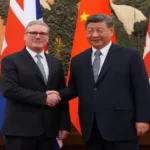Qatar’s recent referendum to eliminate its brief Shura Council elections has garnered significant support. There are 90 percent of voters endorse constitutional amendments that restore the Emir’s authority to appoint members of the legislative body. The results, confirmed by Qatar’s interior ministry on Wednesday, indicated that 90.6 percent of valid ballots favored the changes.
This vote was part of a wider set of constitutional reforms, achieving an impressive turnout of 84 percent among eligible voters. Around 380,000 Qatari citizens took part in the referendum, showcasing strong public involvement. This policy shift effectively dismantled the system introduced just a few years ago, which allowed Qatar to hold its inaugural elections for the Shura Council.
Following the results, Qatar’s Emir, Sheikh Tamim bin Hamad Al Thani, expressed his appreciation to citizens for their enthusiastic participation. “By supporting the constitutional amendments, the people of Qatar have reaffirmed their commitment to the values of unity and justice,” the Emir shared on social media.
The result of this referendum means that the Emir will once again hold the exclusive power to appoint all members of the Shura Council, a practice that had been standard for decades before the elections began in 2021. The government has stressed that this change reflects a commitment to ongoing stability and effective governance.
Political analysts believe that the choice to return to Emir-appointed members may stem from a need to uphold political coherence and national unity, especially in light of the challenges brought about by political diversification in a swiftly evolving region.
Critics of the previous elections had voiced concerns regarding the political implications of the Shura Council’s electoral makeup, worrying that it might result in fragmentation or unproductive divisions within the country’s legislative framework. With the referendum’s outcome now in, Qatar’s leadership aims to enhance governance while ensuring continuity in decision-making processes.
In the lead-up to the referendum, the government organized a series of discussions and informational sessions to clarify the amendments and their effects on the nation’s governance model. Many Qataris showed support for the changes, expressing confidence in the Emir’s leadership and a desire for stability amid regional uncertainty.
The result of this referendum is viewed as a pivotal moment in Qatar’s political development, marking a shift back to a more centralized governance system. The long-term effects on Qatar’s political structure and future reforms are expected to unfold in the coming years.









